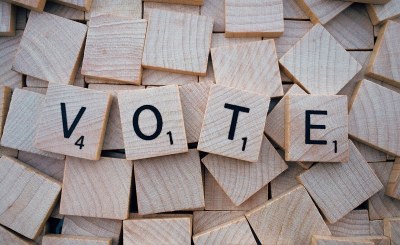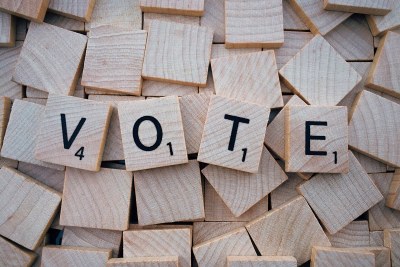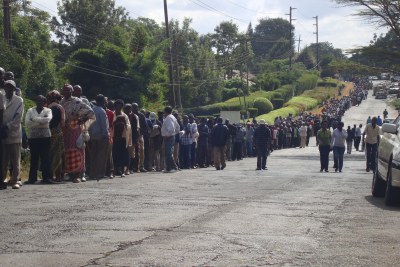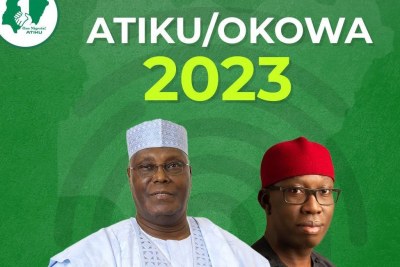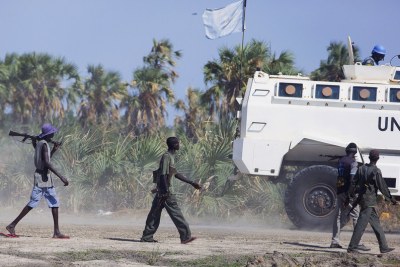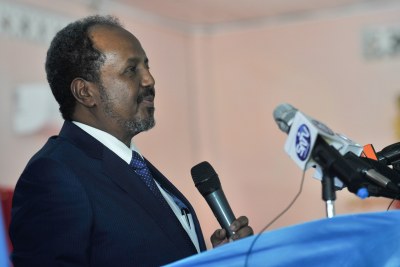-
Africa: What Can The Continent Learn From Colombia's Historic Elections?
African Arguments, 29 June 2022
African contexts vary widely, but there may be lessons to learn from a campaign built on good living, environmental justice, and "Nobodies". Read more »
-
Libya: UN Highlights Need to Speed up Progress Towards National Elections
UN News, 27 June 2022
Leaders in Libya must resolve outstanding issues so that long-awaited presidential and parliamentary elections can finally be held, UN political affairs chief Rosemary DiCarlo told… Read more »
-
Nigeria: Nigerian Activists Encourage Young Concertgoers to Vote
VOA, 27 June 2022
Hundreds of young people chanted joyously Saturday at a concert in Abuja, listening to some of Nigeria's biggest music stars. Read more »
-
Angola: Opposition and Activists Allege 'Dirty Tricks' As Election Nears
DW, 27 June 2022
On Sunday, June 19, an Emirates airplane waited for takeoff for an hour on the tarmac at Angola's Luanda International Airport. Read more »
-
Mozambique: U.S.$292 Million Needed for Elections
AIM, 23 June 2022
Mozambique's National Elections Commission (CNE) needs 18.7 billion meticais (about 292 million US dollars, at the current exchange rate) for voter registration and other… Read more »
What Can Africa Learn From Colombia's Elections?
After 214 long years, Colombians democratically elected a left-wing government headed by Gustavo Petro, an economist, former mayor of the capital Bogotá, and ex-guerrilla member of M19 (demobilised in 1984).
His running mate Francia Márquez, an environmental lawyer and winner of the 2018 Goldman Prize for her climate justice work, will be the country's first ever Afro-Colombian vice-president. Together, they forged the Pacto Histórico, a coalition whose strength derives from a diversity of movements and organisations.
For the first time, marginalised communities that Márquez refers to as lxs Nadies ("The Nobodies") were protagonists in the election of a new government. Women, Indigenous populations, Afro-Colombians, the LGBTQI+ community, the working class, disabled people, communities historically impacted by state violence and environmental destruction all went out to vote. In departments with majority Afro-Colombian populations such as Chocó and Cauca, over 80% of inhabitants cast ballots, many for the first time.
As movements around the world struggle to shift narratives and power structures, and acknowledging the diversity of local dynamics that shape our possibilities, they can learn the importance of building power and coalitions against the politics of fear. Petro and Márquez organised to reach diverse constituencies otherwise uninterested in party politics and uplifted their identities and contributions in a communal project of living with dignity, together, writes Tatiana Garavito and María Faciolince Martina for African Arguments.
InFocus
-
On August 24, 2022 Angola will hold elections in which the opposition, UNITA will challenge President João Lourenco's ruling People's Movement for the Liberation of Angola ... Read more »
-
Catholic bishops in the country have challenged the electorate not to be "casual and careless" while exercising their right to vote during the August 9 polls. The Read more »
-
The presidential candidate of the Peoples Democratic Party in the 2023 elections, Atiku Abubakar, has announced Delta State governor Ifeanyi Okowa as his running mate ... Read more »
-
South Sudan leaders announced on August 4, 2022 that the country's transitional leadership will stay in power for another 24 months to complete the political, security and ... Read more »
-
Former president Mohamed Abdullahi Farmajo has handed power to his successor Hassan Sheikh Mohamud who was elected as the 10th president in May 15, 2022 elections in Read more »

Voters in Ethiopia wait outside a polling tent to cast their ballot (file photo).

